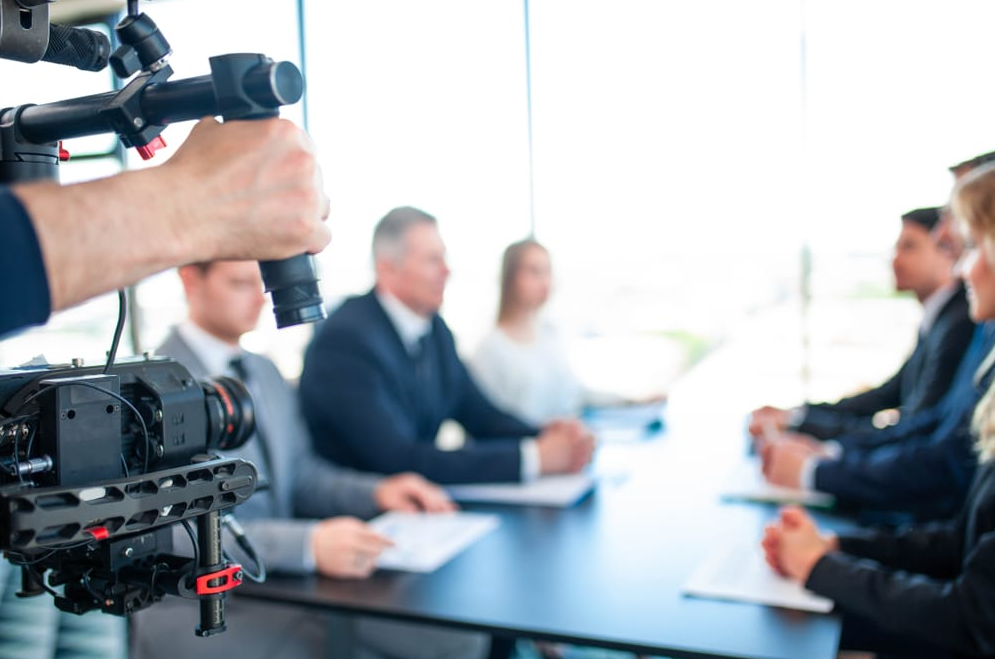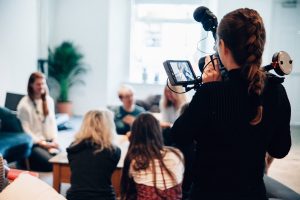The Role of Lawful Videography in Depositions and Tests
Legal videography has arised as a vital tool in both depositions and tests, offering a complex method to recording witness testaments. As legal specialists increasingly identify its value, it motivates a deeper examination of exactly how these visual documents can affect juror perceptions and test outcomes.

Relevance of Legal Videography
Lawful videography plays a pivotal function in the documents and presentation of depositions and trials. This customized field incorporates technological skills with legal expertise to create a reputable document of proceedings that can substantially affect case results. The aesthetic facet of legal videography improves the understanding of witness testament, permitting jurors and judges to observe not only the spoken words however additionally the disposition, emotions, and body movement of the witnesses.
Furthermore, legal videography provides an objective account of events, reducing the potential for misconception that can accompany written transcripts alone. This visual documentation acts as an important tool during test discussions, assisting in a more clear and more persuasive story for both complainants and accuseds. The capability to replay video sectors during court proceedings makes it possible for legal teams to stress essential points, strengthening their disagreements effectively.
The relevance of lawful videography extends past the courtroom; it additionally plays a crucial function in maintaining proof for future reference, whether for allures or further lawsuit. As such, its assimilation into the lawful process is essential for making certain a fair and accurate depiction of the facts, inevitably contributing to the search of justice.

Process of Legal Videography
While recording the nuances of depositions and tests, the process of legal videography includes numerous crucial actions that make certain top quality, precise recordings. A specialist lawful videographer prepares by reviewing the case materials and recognizing the specific requirements of the deposition or trial. This preparation consists of acquainting themselves with the individuals and the context, which assists in capturing relevant information.
On the day of the recording, the videographer establishes the required devices, which commonly consists of high-def cameras, microphones, and appropriate illumination. Making certain optimal angles and sound quality is essential, as it directly impacts the effectiveness of the recording. The videographer interacts with attorneys and participants to establish procedures, making sure that every person recognizes the recording procedure.
Throughout the deposition or test, the videographer diligently records the proceedings, paying attention to both verbal and non-verbal signs. This consists of recording the attitude and responses of witnesses and attorneys. After the session concludes, the videographer may modify the video for clearness and compliance with lawful criteria, creating an end product that properly shows the proceedings for future referral and use in legal contexts.
Advantages in Depositions
The consolidation of videography in depositions provides numerous benefits that enhance the total process of collecting evidence. One key benefit is the ability to catch witness testimonies with aesthetic and auditory integrity, offering an extra precise depiction of the witness's attitude, tone, and body language. This multidimensional technique allows lawyers and juries to examine integrity better than conventional written records alone.
Furthermore, videographed depositions work as a powerful device for maintaining statement. Needs to a witness ended up being inaccessible for trial, their taped deposition can be played in court, making certain that their evidence stays accessible and appropriate. This facet significantly minimizes the threat of losing vital details that could affect instance outcomes.

Last but not least, videography boosts the total professionalism and reliability of the deposition process, instilling confidence in clients regarding the thoroughness of their legal depiction (legal videography). By leveraging modern technology, lawyers can dramatically boost the efficiency of depositions
Influence on Tests
In lots of trials, the integration of videography can significantly influence the presentation of proof and the court's understanding. Legal videography captures witness testaments and essential proof in a dynamic format, allowing jurors to involve with the material on multiple degrees. This aesthetic element enhances the narration element of a trial, giving context and emotional vibration that standard text-based evidence might do not have.
Additionally, video recordings can offer as powerful devices for get redirected here impeachment throughout cross-examination. When discrepancies emerge in between a witness's prior declarations and their court testimony, video proof offers an unbiased recommendation that can sway jurors' point of views. This immediacy and clearness can bolster the reputation of a celebration's narrative while all at once weakening opposing arguments.

Future Trends in Legal Videography
As we look toward the future of lawful videography, several arising fads assure to improve its duty within the court room. One substantial fad is the assimilation of expert system (AI) in video clip evaluation and modifying. AI can enhance the procedure of determining essential moments in tape-recorded depositions, allowing attorneys to quickly access relevant web content, therefore improving effectiveness in situation preparation.
Additionally, the surge of online truth (VR) and boosted fact (AR) innovations is expected to transform just how jurors experience proof. legal videography. By immersing jurors in a simulated setting, these innovations can supply Check This Out a more extensive understanding of intricate situations, leading to even more educated deliberations
In addition, the boosting demand for remote depositions, increased by the read what he said COVID-19 pandemic, will likely proceed. Legal videographers will certainly need to adjust to new software and systems to guarantee top quality recordings in digital settings.
Lastly, the expanding emphasis on information security will certainly require more stringent procedures for storing and sharing video clip evidence. As the lawful landscape develops, lawful videographers should remain abreast of these patterns to maintain their importance and effectiveness in the judicial procedure.
Conclusion
In recap, legal videography offers an essential feature in the judicial process, improving the integrity of depositions and tests. By capturing the nuances of witness testaments, this medium not just preserves crucial evidence however also help in offering information successfully to jurors. The importance of aesthetic documents in assessing reputation and assisting in interrogation can not be overstated. As technology continues to advance, legal videography is poised to more transform its function within the legal landscape.
Comments on “Affordable Legal Videography Solutions for Cases.”